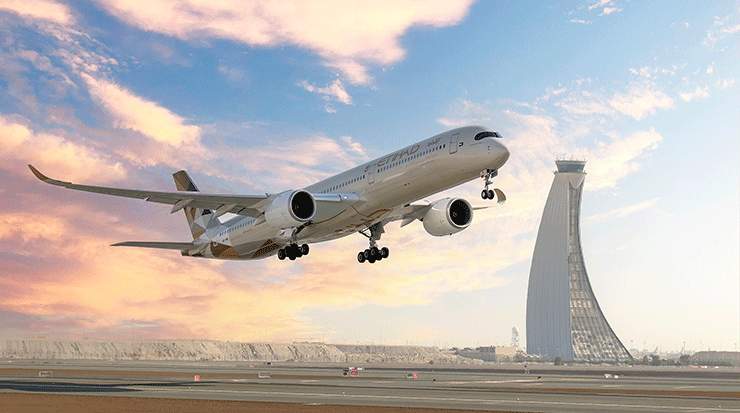In a keynote interview at the airshow, Etihad’s CEO Antonoaldo Neves took to the airshow’s main stage to discuss the airline's ambitious growth plan for the next seven years, Journey 2030.
This strategy, supported by the airline's shareholder, ADQ, signifies a pivotal turning point in Etihad's journey, setting the stage for a future marked by sustainable growth and enhanced customer experiences, with a significant economic contribution to Abu Dhabi.
“As we mark Etihad’s 20th anniversary, we are excited about what’s next. Journey 2030 is the guiding plan that propels Etihad into the future,” said Neves. “Etihad has solidified its global presence and successfully navigated challenges. Now, with strong shareholder support and a strategic plan in place, the airline is poised for sustainable, profitable growth.”
Over the past year, Etihad carried 13 million passengers, a 30 percent increase from 2022. Through Journey 2030, this growth trajectory is set to continue, projecting a return to Etihad's peak 2017 passenger numbers by late next year or early 2025, culminating in a target of 33 million passengers by 2030.
Under Journey 2030, Etihad's network will extend to over 125 destinations, leveraging its strategic geographical advantage connecting Asia and Europe. Simultaneously, the fleet will double to over 160 aircraft, focusing on connecting short and medium-haul destinations in the GCC, India, and Asia with long-haul destinations in Europe and North America. Core tenets of its network strategy include introducing new destinations, providing more options, and increasing frequencies to key international markets.
This year has already proved successful for the airline, which has added 12 new destinations, with further new routes in India, as well as Boston and Nairobi to start shortly. The airline has also enlarged its operations in several key markets, adding flights and improved connectivity across the network, and it has welcomed 16 new aircraft to its fleet.









